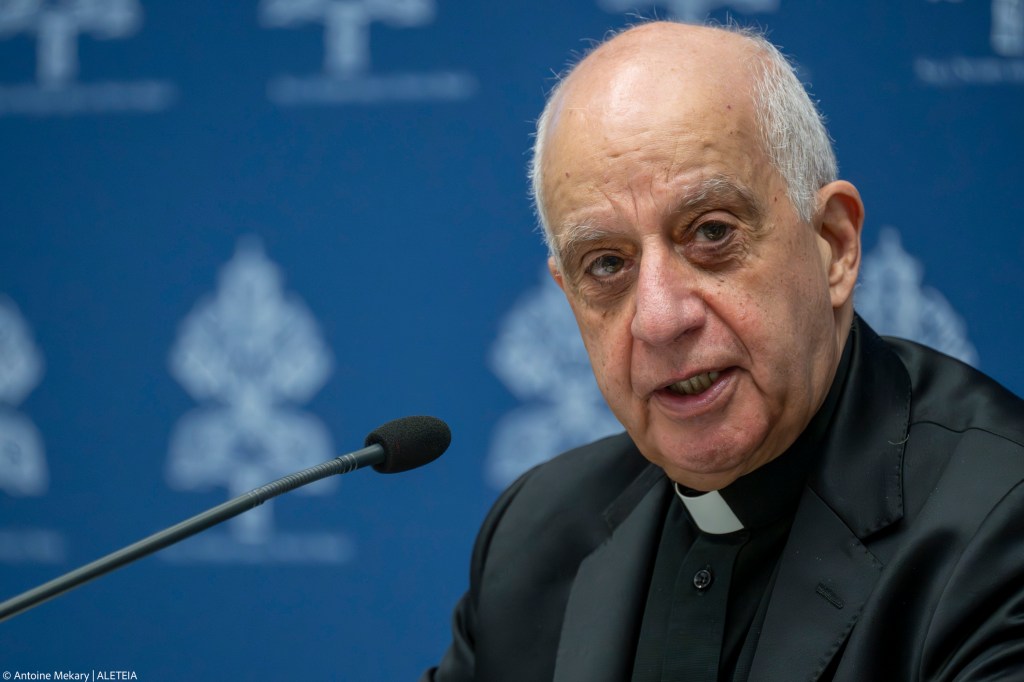Lenten Campaign 2025
This content is free of charge, as are all our articles.
Support us with a donation that is tax-deductible and enable us to continue to reach millions of readers.
On April 4, 2024, the Vatican presented a list of cultural events to be held in Rome this year in preparation for the Jubilee 2025, which is expected to attract millions of faithful to the Italian capital. Music, cinema, history and art are on the agenda, including exhibitions focusing on Salvador Dalí and Marc Chagall, two of the most well-known painters of the 20th century.
“The pastoral dimension of the Holy Year, is not limited to the prayer experience alone, but extends to the spiritual component of the whole person and every person,” said Archbishop Rino Fisichella, pro-prefect of the Dicastery for Evangelization, in explaining why the Jubilee organizers are preparing these cultural events.

“The Jubilee has not only religious significance, but also implies ethical, moral, social and cultural rebirth,” Pope Francis wrote in a letter addressed to the Italian daily Il Messaggero in June 2023.
One of the most interesting events planned in the Eternal City will be two art exhibitions. One, to be presented by the summer, will focus on two works by Spanish painter, Salvador Dalí, and the other, due to open in November, will feature a work by the Russian-born French painter Marc Chagall.
Two unusual artists
The choice to honor these two artists who are not “great ancient masters of Christian art” might seem initially “disconcerting” to some, said Father Alessio Geretti, the curator and organizer of these events. However, he highlighted that both these figures can bring interesting perspectives on the faith.
He explained how although Salvador Dalí cannot be described as a “regular Catholic” he is “very interesting from the spiritual point of view” because of his personal “journey that brought him to the rediscovery of faith.” Father Geretti for example cited the painter’s experience of the Spanish Civil War (1936 to 1939) or his personal friendship with a Carmelite friar.
Father Geretti explained how Marc Chagall instead, although being Jewish, “drew a lot of inspiration” from Sacred Scripture and was “one of the very few in the Jewish world who explicitly recognized the fascination of Christ.” In fact, he continued, Chagall gave Christ a “central role” in some of his paintings.
Father Geretti also underlined that the works featured in the exhibition will focus specifically on “Christian iconography,” although he could not reveal yet what specific paintings will be shown. Additionally, he said that the organizers do not intend to have an exhibit that shows a wide variety of works but to create “grace events,” centered on deepening the faith through culture.
Other cultural events planned
Among the other cultural events planned in preparation for the Jubilee 2025, Archbishop Fisichella spoke in particular about the "In Cammino" project, a modern pilgrimage between the 14 largest abbeys in Europe promoted by the "No'hma" cultural association. The itinerary began at the Abbey in Canterbury in July 2023, and will cross seven European countries before reaching Rome in 2025.
Three concerts are also scheduled: On April 28, at the Church of St. Ignatius of Loyola in Rome, Handel's famous “Messiah” will be performed by the Florentine Ensemble "Musici del Gran Principe"; on November 3, at the Auditorium on Via della Conciliazione near the Vatican, the National Academy of St. Cecilia will perform Dmitri Shostakovich's 5th Symphony; on December 22, the Sistine Chapel Choir will perform at the Church of St. Ignatius of Loyola.
With regards to cinema, from April 14 to 21, a movie theater connected to a parish and the Diocese of Rome will be taking part in a cultural initiative centered on the Jubilee by screening films by James Hawes, Wim Wenders, Aki Kaurismäki, Martin Scorsese, Radu Mihăileanu and others. The festival will open with a restored version of the Italian movie “La porta del cielo” (“The Gates of Heaven”) produced by famous Italian director Vittorio De Sica and screenwriter Cesare Zavattini. Filmed in Rome in 1944 at the height of the Fascist occupation, this film tells the story of a pilgrimage of sick people to the Marian shrine of Loreto.
Finally, an exhibition of Oriental icons will be held in January 2025 in the Church of St. Agnese in Piazza Navona, featuring Syriac, Russian, and Ukrainian works.










